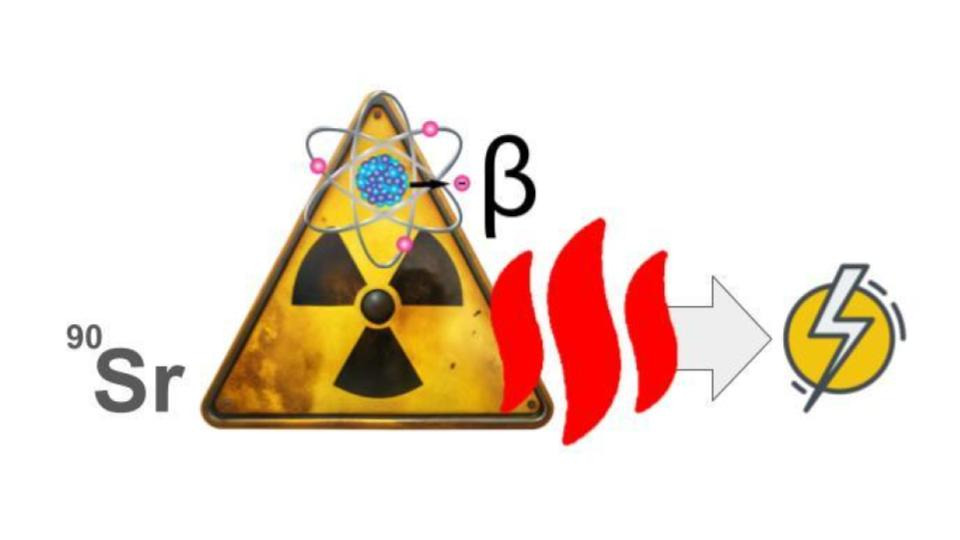Duration: 12 months
This projects studies the development of a Sr-90 radioisotope fuel for a potential use in a European Radioisotope Power Source (RPS) for the needs of potential ESA missions as well as commercial applications. If successful, such a new RPS could address the current shortage of radioisotope power for deep space exploration and resource utilisation. While being largely available in nuclear waste, Sr-90 radioisotope has been used for terrestrial applications but was rejected for space due to a required heavy gamma-shielding. Sr-90 undergoes two-stage beta-decay (emitting high-energy electrons) which, deflected by the Coulomb interaction in atoms with high atomic number (Z), cause strong bremsstrahlung radiation in the form of X-rays. The idea is to avoid heavy gamma-shielding by admixing a light beta absorbent into the Sr-90 fuel composition and, therefore, avoiding bremsstrahlung radiation by reducing the effective Z of the fuel composition. In addition, we propose to revise the chemical form of Sr-90 considering SrB6 and some other candidate forms. The study includes a thorough research of the materials, including their thermal, chemical and radiation stability, the aspects of their synthesis and safety during production. We aim to optimise the power-to-weight ratio of the radioisotope fuel with the benchmark goal of 0.1 W/g at the level of remaining bremsstrahlung radiation equal to the one of Am-241 in the form of oxide.

